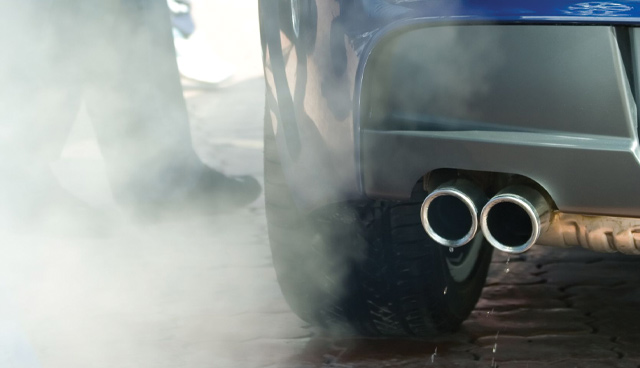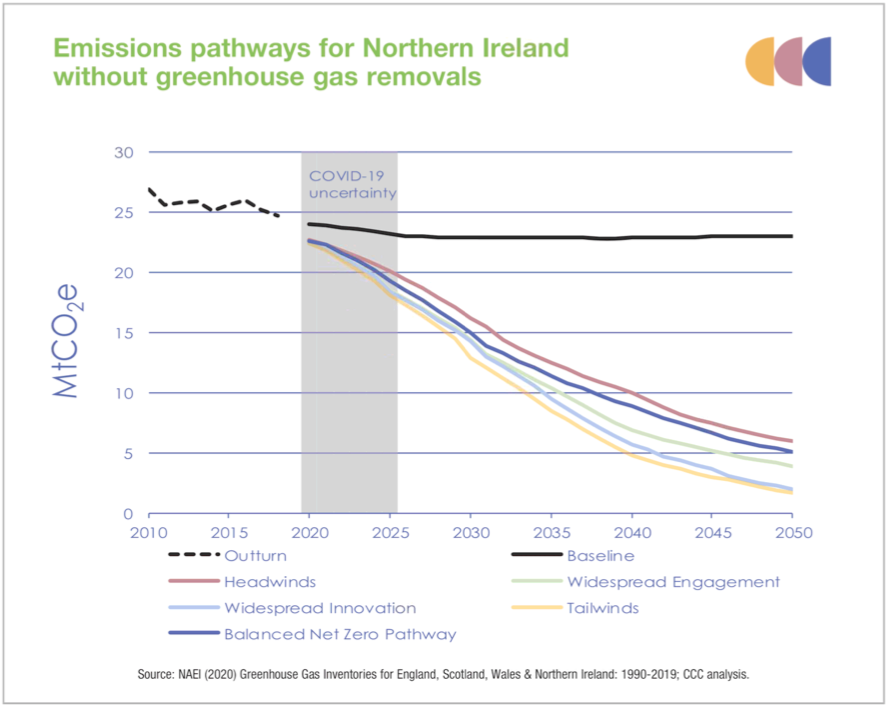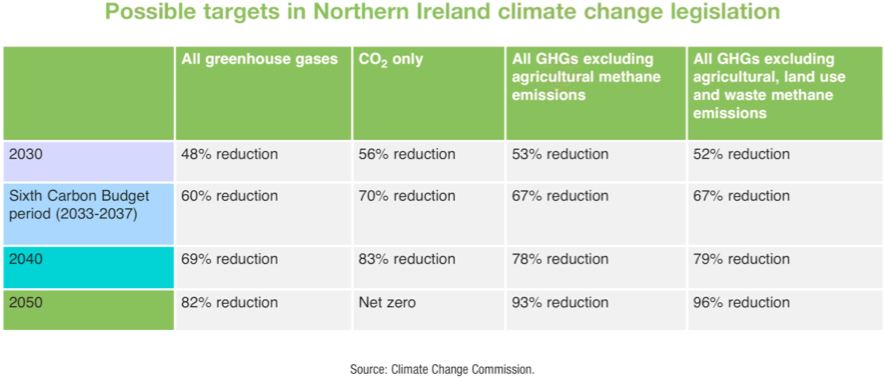Carbon emission reduction: 82 per cent target advised

An 82 per cent target for carbon emissions in Northern Ireland has been advised by the UK Climate Change Committee (CCC).
The Northern Ireland Executive’s commitment to introduce an Environment Strategy has enabled the UK Government’s advisory body to set a target for Northern Ireland for the first time.
“An 82 per cent reduction in all greenhouse gases in Northern Ireland represents equivalent effort and a fair contribution to the UK net zero target,” wrote John Gummer, Chair of the CCC to Environment Minister Edwin Poots in early December 2020.
The Minister had written to the CCC in February 2020 to ask the CCC for advice on Northern Ireland’s fair contribution to the UK net zero target and reductions by 2030. However, a response was delayed until after the CCC had completed its work on the UK’s Sixth Carbon Budget.
The UK Government set its 2050 net zero target in law in 2019, however achieving net-zero emissions for the whole of the UK by 2050 does not necessitate all parts of the UK getting to zero emissions, as some areas deemed net sources of greenhouse gases will be offset by other parts of the UK which are net sinks.
The CCC recognises the unique challenges faced by Northern Ireland in emission reductions, given its large agricultural sector. “Northern Ireland is a significant net exporter of agri-food products produced in Northern Ireland but consumed in the rest of the UK. It is therefore fair that, as well as taking the right actions to reduce emissions from agriculture, some of these emissions are offset by ‘sinks’ that are located elsewhere in the UK.”
Adding: “Our analysis suggests that Northern Ireland achieving net zero greenhouse gas emissions is not necessary for the UK to meet its climate targets.”
However, the CCC says that “deep emissions” reductions in Northern Ireland will still be crucial if the UK is to reach its 2050 targets.
Interestingly, the CCC says that there is “no purely technical” reason why net zero is not possible in Northern Ireland but that getting to this point would likely result in one, or both, of a substantial reduction in output from Northern Ireland’s livestock farming sector or a “much greater than equitable” share of all UK greenhouse gas removal technologies being located in Northern Ireland.
In recommending a target to reduce all greenhouse gases by at least 82 per cent by 2050 into any climate legislation for Northern Ireland, the CCC says that supplementary targets may also be required.
These would include a carbon dioxide only target, expected to be net zero by 2050 and supplementary targets for all greenhouse gases, as well as a separate, longer target for biogenic methane.
The public discussion document launched in Northern Ireland by Environment Minister Edwin Poots asked for views on two policy options. The first being legislation that would bind Northern Ireland to net zero by 2050 and the second legislating for Northern Ireland to make an appropriate contribution to the wider UK’s effort.







